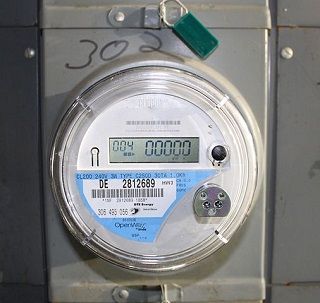Smart Grid: Addressing the Hot-Buttons of the Target Market

My current career in renewable energy has an important commonality, namely, that customer audiences still react to marketing messages if and only if those messages are aligned with their hot-buttons. And here’s a great example, from my colleague Jesse Berst of SmartGridNews writing about an initiative in Pennsylvania that would deploy smart meters to a customer base that may be skeptical of the cost/benefits:
You’ve heard me say that utilities should be tying their smart grid outreach to reliability and resilience, themes customers and policymakers are eager to hear. And you’ve heard me say that utilities need to proactively report on the quantifiable benefits arising from their smart grid projects. (Rather than wave their arms around and spout vague generalities.) Here is a Pennsylvania utility that is doing both. It just issued a release saying that customers are gaining a 38% improvement in service reliability thanks to a smart grid pilot. Nicely done.
Actually, the ultimate benefits of smart grid are not at all vague, and Jesse knows this better than anyone, yet they can appear so to a largely uninformed audience. Eventually, people will need to understand that smart grid:
• Means a more efficient use of energy
• Reduces the need to build new power plants and consume more fossil fuels
• Is a gating factor to the integration of renewable energy in the grid-mix
…. and that all of this means healthier lungs and less environmental damage.
Having said all this, until people understand this and care about it, by all means let’s sell to their hot-buttons: smart grid keeps the lights on!
P.S., Here’s a link to a webinar on Jesse Berst’s Smart Cities Council.

before blindly accepting a “smart grid” metering system just make sure that it does not step on individual liberty. Any meter that can turn your power off and on without your permission is not acceptable in a free society.
I would be one of the first to accept a smart meter that I could voluntarily have installed if it promised to give me a lower rate for using less power during peak demand times. That is a reasonable trade of convenience for cost savings.
We don’t need bureaucrats deciding for us all that when the temperature rises above a predetermined point that all power to AC units and electric dryers will be cut.
Green initiatives with the goal of energy conservation can be met with the cooperation of voluntary willing consumers. Truely smart meters can make it happen.
Smart Grid could be very expensive for rate payers and tax payers.
400 million for 75 out of 5000 circuits. There was once a CEO that they had to get it done before it was mandated due to fuel consumption (due to ACSR and line delivery issues) LOSS DURING PEAK..IT may be renamed SHART GRID
In addition to privacy issues, I don’t think there will be widespread acceptance until the health issues are dealt with. There are many people who believe them to be a health hazard. In fact, my town has a moratorium against their installation for that very reason. Our local utility (PG&E) has done little to assuage people’s fears or show proof of their safety. The utility as a whole has a terrible customer service reputation and safety record, and tried to block the formation of our now highly successful Community Choice Aggregation program called Marin Clean Energy. It’s too bad the benefits of the smart grid will be hard to realize because of the way this utility treats its customers.
Check out stop smart meter dot org! I met these folks while dealing with electric & gas smart meter explosions & fires
The true risk is the smart meter being hacked. I just read a search engine called Shodan that finds connected devices world wide has been used to demonstrate via several hacks; afftecting hundreds of thousands of devices from baby monitors to any power plant equipment; how it is possible to access any Internet connected device (which a smart meter WOULD have to be) and even the Shodan creator warns that it is scary to think of such infrastructure such as power plants being connected and at dire risk.
The levels of overload and distribution surge current along with thermodynamic issues,rain,weather etc during peak will be devistating. It will be a race toward shart if they can not extrapolate peak loading and other tangable issues other than the simple auto-shut off….lol..+ I know most people dont want their stuff turned off when they want to use it? Yes Jay is correct about the security. A giant expense for a small result